Why You Should Never Swap Swimming Pool Antifreeze With Automotive Antifreeze
When you're getting ready to close your fibreglass pool for the winter months, you may be considering using swimming antifreeze. It should, however, never be swapped out with automotive antifreeze. This is because both products are meant for separate things. Antifreeze meant for swimming pools has propylene glycol in it. Automotive antifreeze, on the other hand, has ethylene glycol.
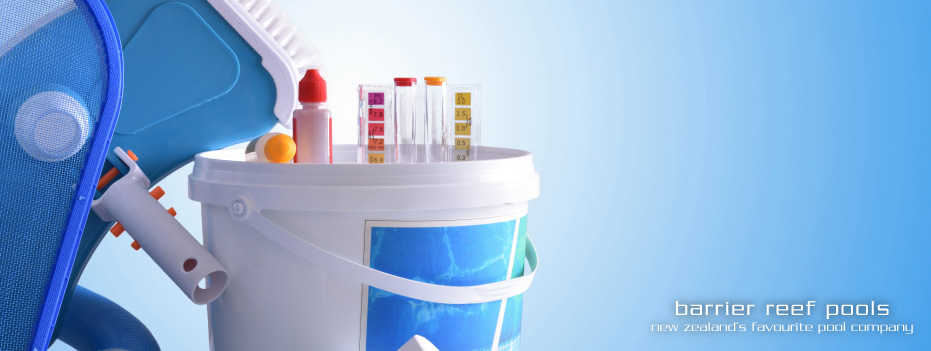
This means that automotive antifreeze, when added to the pool water, can mix with the chlorine in the pool. It will also mix with other chemicals you may have added while closing your pool. As a result, the water in your pool can become toxic. If you do add automotive antifreeze to your pool, then you could be damaging your pool. Come spring, you'll have an expensive clean-up and repair job ahead of you.
What is swimming pool antifreeze?
If you own a fibreglass pool, then you should first understand what swimming pool antifreeze is, before you use it. Swimming pool antifreeze is essentially a liquid solvent that’s used in preventing water within the pool plumbing from freezing. If the water does freeze then it may expand, or cause other kinds of damage to the pool, over the course of the winter months.
When you use antifreeze meant for swimming pools, then your fibreglass pool will be protected through the cold of the winter. If it snows where you live, or if the temperatures fall dangerously low during the winter. Then you should consider using swimming pool antifreeze to protect your pool.
In many cases, you may not need to use antifreeze in your pool at all. This especially applies if you’ve already blown the pipes out, removing any of the water that might be remaining in them. Swimming pool antifreeze is more like an extra form of protection for your pool if you are not sure whether your pool pipes are properly cleaned or not.
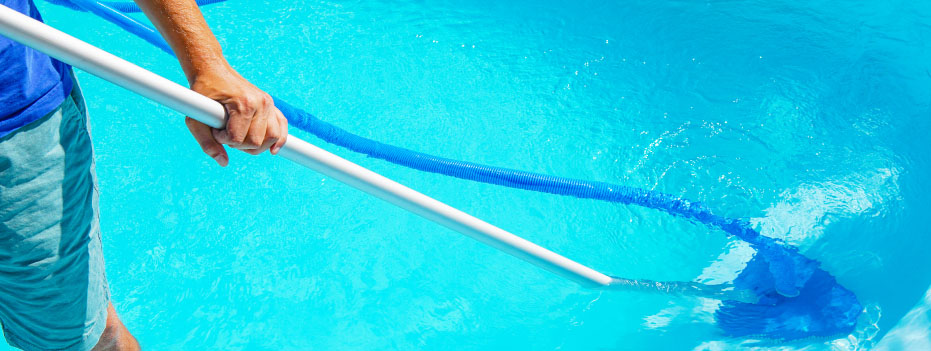
Ingredients used in swimming pool antifreeze
The most common ingredient that you can find in swimming pool antifreeze, is propylene glycol. This substance has the ability to absorb water, and it prevents drain leakage from forming in the first place. It also stops the pipes of the pool from becoming frozen, which could cause them to crack. If there are any cracks in your plumbing, then getting it repaired can be expensive.
Note that the ingredients used in swimming pool antifreeze are different from what’s used in automotive antifreeze. Automotive antifreeze uses ethylene glycol, which when mixed with the pool closing chemicals, can turn the pool water toxic. This toxic water can affect the shell of your pool, as well as other pool accessories.
Should you use swimming pool antifreeze in your pool?
Swimming pool antifreeze is not toxic, and it won’t hurt anyone using your swimming pool. However, you should still avoid spilling pool antifreeze directly into the water of your pool. Instead, pool antifreeze is used on the pipes of the pool.
The biggest benefit to using swimming pool antifreeze in your pool is that you will be able to ensure that the pipes will be damage free. During the winter, the pipes can get frozen, which can in turn cause them to get damaged. However, swimming pool antifreeze can end up reacting badly to either rubber or metal. So you’ll need to make sure that there isn’t any equipment nearby that might be exposed to the antifreeze as well. This is because such equipment can end up getting damaged.
How do you use swimming pool antifreeze?
When you want to add pool antifreeze to your fibreglass pool, you should never add it directly into the water of your pool. Instead, it should be poured into the pipe that connects to the skimmer basket.
You may also be wondering how much antifreeze you should add to your pool. In case the pipes of your pool have plenty of water, then you’ll need to use around a gallon of antifreeze. This can help you cover around ten feet of a pipeline that is 1.5 inches. You should also note that you should only add small amounts of antifreeze into pipes that are empty.
Before you can add the antifreeze, you’ll need to remove the pool’s skimmer basket first. Remove the plug as well, so that the pipe that you’ll be pouring the antifreeze into, can be exposed. You should also ensure that the level of the water is below the basket line of the skimmer. This helps prevent water from going near the pipe that’s being treated.
Once the water in your pool is at the perfect level, it’s time to add antifreeze to your skimmer. But this antifreeze will need to be diluted first. This provides an additional layer of protection to your skimmer line.
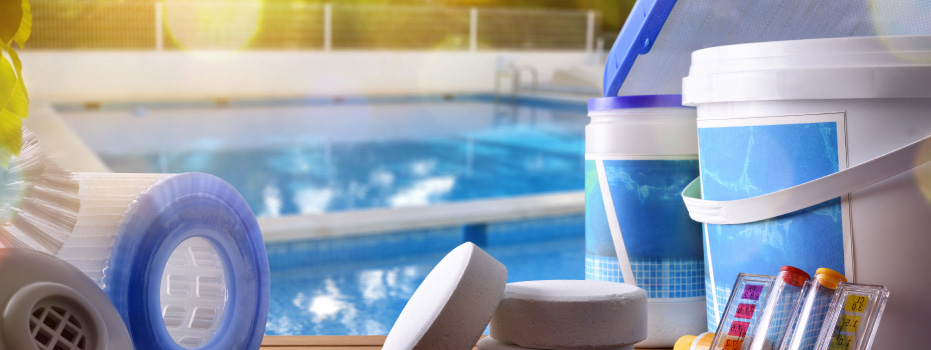
What you should know about adding pool antifreeze to your fibreglass pool
Never use anything other than swimming pool antifreeze, on your pool. Some people wonder if they can use the antifreeze they add to their cars, but this is a bad idea. The core ingredient present in swimming pool antifreeze is different from what’s in automotive antifreeze. If you add automotive antifreeze to your fibreglass pool, then this can turn the water in your pool toxic.
You should also never pour the antifreeze directly into the water of your pool. This way, there are chances that the antifreeze can splash back and hit you. If some swimming pool antifreeze does get into the water of your fibreglass pool, then there’s nothing to worry about. This is because swimming pool antifreeze is non-toxic. However, the same can’t be said for automotive antifreeze. If automotive antifreeze enters the water of your pool, then the pool will need to be thoroughly cleaned before anyone can use it.
Conclusion
You should never use automotive antifreeze instead of swimming pool antifreeze, in your pool. This is as ethylene glycol, which is found in automotive antifreeze, can mix with the pool chemicals to create a toxic environment. Instead, only use swimming pool antifreeze, which uses propylene glycol, in your fibreglass pool.
Why You Should Never Swap Swimming Pool Antifreeze With Automotive Antifreeze
When you're getting ready to close your fibreglass pool for the winter months, you may be considering using swimming antifreeze. It should, however, never be swapped out with automotive antifreeze. This is because both products are meant for separate things. Antifreeze meant for swimming pools has propylene glycol in it. Automotive antifreeze, on the other hand, has ethylene glycol.
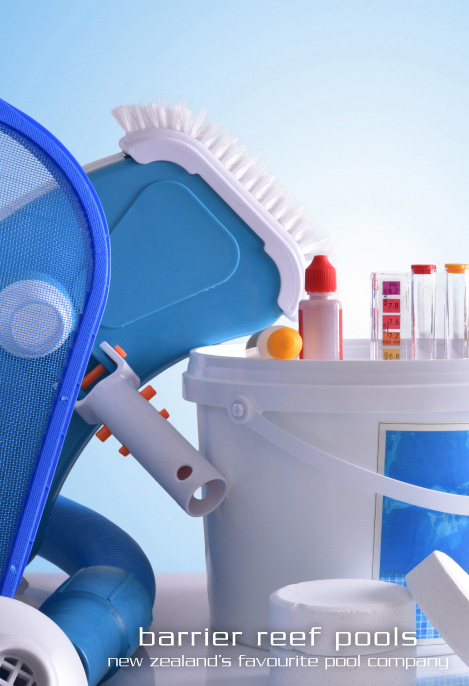
This means that automotive antifreeze, when added to the pool water, can mix with the chlorine in the pool. It will also mix with other chemicals you may have added while closing your pool. As a result, the water in your pool can become toxic. If you do add automotive antifreeze to your pool, then you could be damaging your pool. Come spring, you'll have an expensive clean-up and repair job ahead of you.
What is swimming pool antifreeze?
If you own a fibreglass pool, then you should first understand what swimming pool antifreeze is, before you use it. Swimming pool antifreeze is essentially a liquid solvent that’s used in preventing water within the pool plumbing from freezing. If the water does freeze then it may expand, or cause other kinds of damage to the pool, over the course of the winter months.
When you use antifreeze meant for swimming pools, then your fibreglass pool will be protected through the cold of the winter. If it snows where you live, or if the temperatures fall dangerously low during the winter. Then you should consider using swimming pool antifreeze to protect your pool.
In many cases, you may not need to use antifreeze in your pool at all. This especially applies if you’ve already blown the pipes out, removing any of the water that might be remaining in them. Swimming pool antifreeze is more like an extra form of protection for your pool if you are not sure whether your pool pipes are properly cleaned or not.
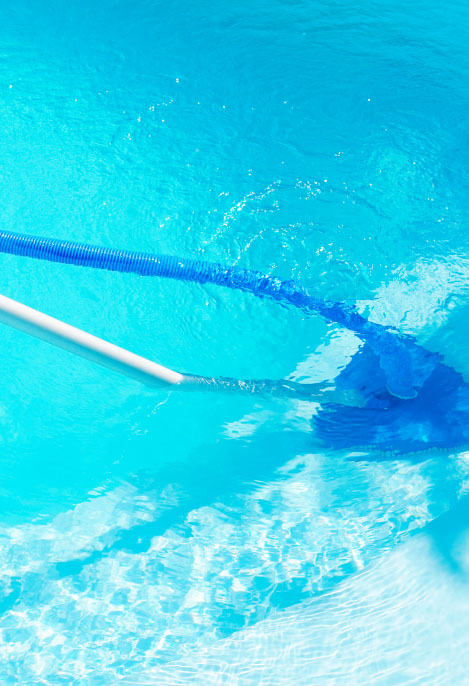
Ingredients used in swimming pool antifreeze
The most common ingredient that you can find in swimming pool antifreeze, is propylene glycol. This substance has the ability to absorb water, and it prevents drain leakage from forming in the first place. It also stops the pipes of the pool from becoming frozen, which could cause them to crack. If there are any cracks in your plumbing, then getting it repaired can be expensive.
Note that the ingredients used in swimming pool antifreeze are different from what’s used in automotive antifreeze. Automotive antifreeze uses ethylene glycol, which when mixed with the pool closing chemicals, can turn the pool water toxic. This toxic water can affect the shell of your pool, as well as other pool accessories.
Should you use swimming pool antifreeze in your pool?
Swimming pool antifreeze is not toxic, and it won’t hurt anyone using your swimming pool. However, you should still avoid spilling pool antifreeze directly into the water of your pool. Instead, pool antifreeze is used on the pipes of the pool.
The biggest benefit to using swimming pool antifreeze in your pool is that you will be able to ensure that the pipes will be damage free. During the winter, the pipes can get frozen, which can in turn cause them to get damaged. However, swimming pool antifreeze can end up reacting badly to either rubber or metal. So you’ll need to make sure that there isn’t any equipment nearby that might be exposed to the antifreeze as well. This is because such equipment can end up getting damaged.
How do you use swimming pool antifreeze?
When you want to add pool antifreeze to your fibreglass pool, you should never add it directly into the water of your pool. Instead, it should be poured into the pipe that connects to the skimmer basket.
You may also be wondering how much antifreeze you should add to your pool. In case the pipes of your pool have plenty of water, then you’ll need to use around a gallon of antifreeze. This can help you cover around ten feet of a pipeline that is 1.5 inches. You should also note that you should only add small amounts of antifreeze into pipes that are empty.
Before you can add the antifreeze, you’ll need to remove the pool’s skimmer basket first. Remove the plug as well, so that the pipe that you’ll be pouring the antifreeze into, can be exposed. You should also ensure that the level of the water is below the basket line of the skimmer. This helps prevent water from going near the pipe that’s being treated.
Once the water in your pool is at the perfect level, it’s time to add antifreeze to your skimmer. But this antifreeze will need to be diluted first. This provides an additional layer of protection to your skimmer line.
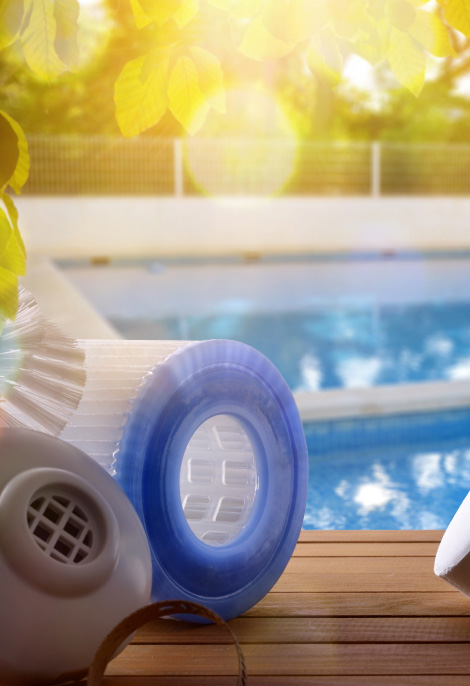
What you should know about adding pool antifreeze to your fibreglass pool
Never use anything other than swimming pool antifreeze, on your pool. Some people wonder if they can use the antifreeze they add to their cars, but this is a bad idea. The core ingredient present in swimming pool antifreeze is different from what’s in automotive antifreeze. If you add automotive antifreeze to your fibreglass pool, then this can turn the water in your pool toxic.
You should also never pour the antifreeze directly into the water of your pool. This way, there are chances that the antifreeze can splash back and hit you. If some swimming pool antifreeze does get into the water of your fibreglass pool, then there’s nothing to worry about. This is because swimming pool antifreeze is non-toxic. However, the same can’t be said for automotive antifreeze. If automotive antifreeze enters the water of your pool, then the pool will need to be thoroughly cleaned before anyone can use it.
Conclusion
You should never use automotive antifreeze instead of swimming pool antifreeze, in your pool. This is as ethylene glycol, which is found in automotive antifreeze, can mix with the pool chemicals to create a toxic environment. Instead, only use swimming pool antifreeze, which uses propylene glycol, in your fibreglass pool.





